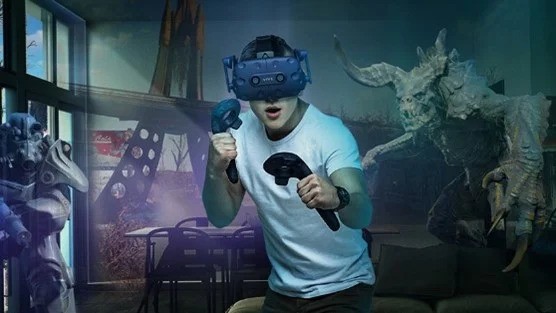Virtual Reality Technology in Gaming
Virtual Reality (VR) technology has revolutionized the gaming industry, offering players unprecedented levels of immersion and interactivity. By transporting users into virtual worlds, VR games redefine the gaming experience, blurring the lines between reality and imagination. This article explores the impact of VR technology on gaming and the key features that make VR games a compelling choice for gamers worldwide.

Realistic Environments and Interactions
VR technology enables developers to create highly realistic environments and interactions within games. From lifelike graphics to responsive physics engines, VR games strive to replicate the intricacies of the real world, enhancing the sense of presence and immersion for players. The ability to reach out and interact with virtual objects using motion controllers further enhances the gaming experience, making players feel like active participants in the virtual world.
Immersive Gameplay Experience of Virtual Reality
One of the most significant advantages of VR technology in gaming is its ability to create immersive gameplay experiences. Unlike traditional gaming setups, VR places players at the center of the action, allowing them to interact with virtual environments in a natural and intuitive manner. Whether exploring vast landscapes, engaging in intense combat sequences, or solving intricate puzzles, VR games offer a level of immersion that traditional gaming platforms cannot match.
Enhanced Social and Multiplayer Experiences
VR gaming also facilitates enhanced social and multiplayer experiences, allowing players to connect and interact with others in virtual environments. Whether collaborating on missions, competing in multiplayer matches, or simply socializing with friends, VR games foster a sense of community and camaraderie among players. Social VR platforms enable users to meet and interact with people from around the world, transcending geographical boundaries and fostering meaningful connections.
Challenges and Opportunities
While VR gaming holds immense potential, it also presents several challenges for developers and players alike. High hardware costs, technical limitations, and motion sickness concerns are among the primary challenges facing the VR gaming industry. However, ongoing advancements in hardware technology, software optimization, and user comfort measures are addressing these challenges, paving the way for wider adoption and acceptance of VR gaming
Conclusion Of Virtual Reality Technology in Gaming
In conclusion, Virtual Reality technology has transformed the gaming landscape, offering players unparalleled levels of immersion, interactivity, and social connectivity. With its ability to create lifelike environments, facilitate realistic interactions, and provide diverse gaming experiences, VR gaming represents the future of interactive entertainment. As the technology continues to evolve, VR games will continue to captivate players and redefine the boundaries of gaming as we know it.